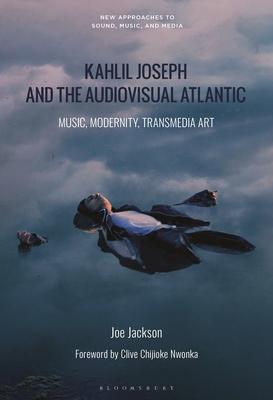Kahlil Joseph has collaborated with musicians FKA twigs, Flying Lotus, Sampha and Shabazz Palaces among many others. He has directed numerous films, music videos and advertisements across Africa, America and Europe. The award-winning filmmaker's disruptive style - which frequently merges visual representations of transcontinental experiences with the countercultural energies of Afrodiasporic music - challenges the Eurocentric biases underpinning Western media. At the same time, his works generate various contradictions and tensions because they are themselves products situated within an economic framework of neoliberal capitalism, at once offering alternative ways of being while, simultaneously, participating in and thereby sustaining the social structures that they otherwise seek to subvert and dismantle.
This is the first book-length study of Kahlil Joseph's work. Distinguishing the artist's personal and professional personas, it traces Joseph's career trajectory and artistic output, emphasizing how the director's construction of a multifaceted filmmaking persona operates in tandem with his artworks to challenge fixed, unidimensional or stable notions of identity. Through biographical study and deep examinations of the director's respective transmedia artworks, this book draws from various discussions shaped by Paul Gilroy's ground-breaking text The Black Atlantic (1993). By applying The Black Atlantic's disruptive audiocentric ideas to contemporary digital media forms generated by Kahlil Joseph and his peers alike, this book challenges the latent Eurocentricity on which dominant theorizations of 'modernity' - as well as the overlapping fields of Film, Media and Screen Studies - are grounded. In turn, it offers an alternative framework for negotiating the paradoxes, contradictions and transnational flows of our media-saturated present: namely, the Audiovisual Atlantic.
Kahlil Joseph and the Audiovisual Atlantic: Music, Modernity, Transmedia Art
Kahlil Joseph has collaborated with musicians FKA twigs, Flying Lotus, Sampha and Shabazz Palaces among many others. He has directed numerous films, music videos and advertisements across Africa, America and Europe. The award-winning filmmaker's disruptive style - which frequently merges visual representations of transcontinental experiences with the countercultural energies of Afrodiasporic music - challenges the Eurocentric biases underpinning Western media. At the same time, his works generate various contradictions and tensions because they are themselves products situated within an economic framework of neoliberal capitalism, at once offering alternative ways of being while, simultaneously, participating in and thereby sustaining the social structures that they otherwise seek to subvert and dismantle.
This is the first book-length study of Kahlil Joseph's work. Distinguishing the artist's personal and professional personas, it traces Joseph's career trajectory and artistic output, emphasizing how the director's construction of a multifaceted filmmaking persona operates in tandem with his artworks to challenge fixed, unidimensional or stable notions of identity. Through biographical study and deep examinations of the director's respective transmedia artworks, this book draws from various discussions shaped by Paul Gilroy's ground-breaking text The Black Atlantic (1993). By applying The Black Atlantic's disruptive audiocentric ideas to contemporary digital media forms generated by Kahlil Joseph and his peers alike, this book challenges the latent Eurocentricity on which dominant theorizations of 'modernity' - as well as the overlapping fields of Film, Media and Screen Studies - are grounded. In turn, it offers an alternative framework for negotiating the paradoxes, contradictions and transnational flows of our media-saturated present: namely, the Audiovisual Atlantic.